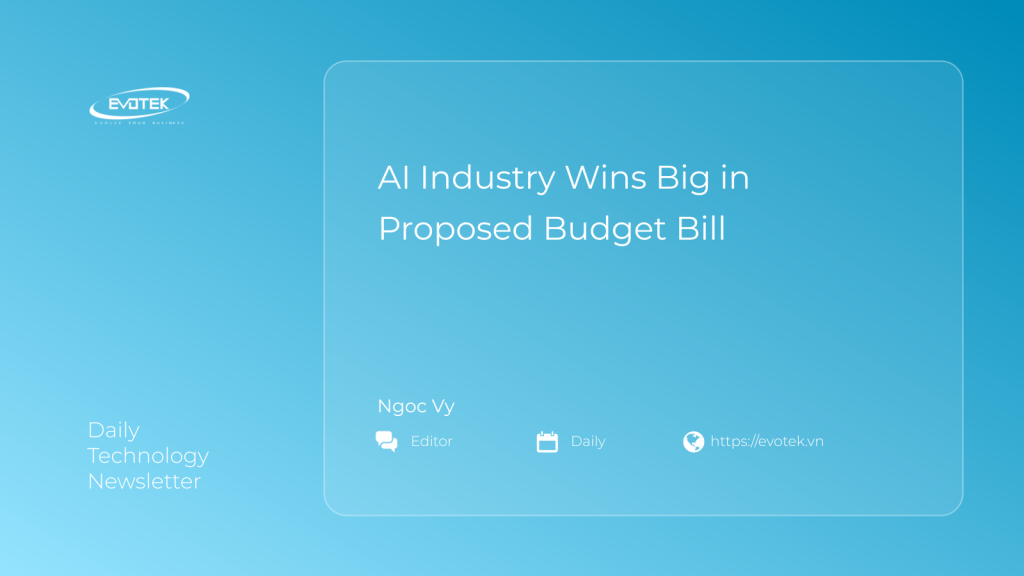A controversial budget bill making its way through the House of Representatives is sparking debate over its implications for artificial intelligence (AI) regulation and the future of technology development. While proponents tout the bill as a means to foster innovation, critics argue it represents a significant handout to the AI industry at the expense of public safety and ethical considerations.
States Stripped of AI Oversight?
One of the most contentious aspects of the bill is a provision that would prevent states from enacting their own AI regulations for a decade. This measure has ignited a firestorm of opposition from state attorneys general and consumer advocacy groups, who argue that it would stifle efforts to address the potential harms of AI, such as deepfakes and discriminatory algorithms.
Representative Jay Obernolte (R-Calif.), a proponent of the provision, claims that a patchwork of state regulations would create a compliance nightmare for small AI startups. He argues that a federal approach is needed to provide clarity and consistency. However, opponents contend that state-level regulations are crucial for addressing local concerns and ensuring that AI is developed and deployed responsibly.
Billions Flowing to Autonomous Weapons
In addition to the regulatory moratorium, the House bill proposes a massive investment in AI-powered military technologies. Billions of dollars would be allocated to the Pentagon and border security agencies for the development of autonomous weapons systems, surveillance drones, and other AI-driven applications. This has raised concerns about the potential for increased militarization and the ethical implications of delegating lethal decisions to machines.
Kevin De Liban, founder of TechTonic Justice, warns that the bill would “steal from poor people to give huge handouts to Big Tech to build technology that is going to perpetuate the president’s authoritarian plans and crackdowns against vulnerable people.”
Concerns Over Medicare Fraud Detection
The bill also includes a $25 million allocation for AI contracts aimed at detecting and recouping Medicare fraud. While proponents argue that this will help to reduce waste and abuse, critics point to past failures of similar programs. They cite examples of flawed algorithms that have led to wrongful denials of healthcare benefits and other harmful consequences.
De Liban notes that previous attempts to use AI in healthcare have resulted in “horrific cuts” to care for vulnerable individuals. He fears that the new provision could exacerbate existing problems and further restrict access to medical services.
Industry Influence and the Future of AI Regulation
The proposed budget bill reflects a growing shift in the AI industry’s approach to regulation. After initially expressing support for government oversight, many companies are now advocating for a more hands-off approach. Critics argue that this change of heart is driven by a desire to maximize profits and avoid accountability.
Amba Kak, co-executive director of the AI Now Institute, warns that the bill could signal the beginning of an era where state-level AI regulation faces increasing obstacles. She anticipates a surge in industry lobbying efforts to preempt or weaken state laws.
Senate Showdown Looms
The fate of the House bill in the Senate remains uncertain. Observers are skeptical that the regulatory moratorium will survive scrutiny under the Byrd rule, which requires all provisions in a reconciliation bill to be directly related to the budget. Senators Josh Hawley (R-Mo.) and John Cornyn (R-Texas) have expressed doubts about the moratorium’s adherence to Senate rules.
Whether the bill ultimately passes in its current form, it has already sparked a crucial debate about the future of AI regulation and the balance between innovation and responsible development. The outcome of this debate will have far-reaching implications for society and the role of technology in our lives.

 日本語
日本語 한국어
한국어 Tiếng Việt
Tiếng Việt 简体中文
简体中文